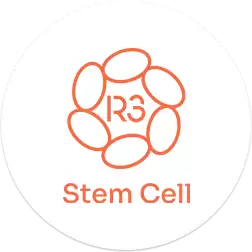The list of conditions that can benefit from regenerative therapy is quite extensive. Back pain, broken bones, musculoskeletal issues, and herniated discs are only a few of the conditions that can be improved with regenerative therapy. Stem cells benefit patients not only by direct action, but also by recruiting nearby cells to assist. The stem cells used in regenerative therapy are also known as mesenchymal stem cells, or MSC’s.
Regenerative therapy uses MSC’s that are developed into whichever type of cell is needed. This means they can be adapted to many different conditions and injuries and targeted to specific sites via injection. MSC’s zero in on sites where injury or disease are present. Once there, they make therapeutic, medicinal drugs in situ. While conventional MSC’s are only able to turn into certain cell lines, the amniotic fluid stem cells are MUCH closer to embryonic stem cells and can turn into additional cell types.
Can your condition benefit from a regenerative therapy? Read on to find out more.
Sports injuries
Many sports injuries, such as torn tendons and broken bones, can benefit from regenerative therapy. Because regenerative therapy uses stem cells, it’s like having custom-made cells from your own body delivered directly to the affected area. Osteoblasts are a type of cell that responds to most sports injuries, and they can be boosted by regenerative therapy. Through regenerative therapy, it’s possible to reduce the healing time of most common sports injuries.
Back Pain
Many Americans suffer from back pain on a daily basis. Whether it’s acute or chronic, having any pain in your back can be exhausting and life-altering. In clinical trials, injections of stem cells produced the pain relief that matched the level of pain relief provided by interventional surgery. When combined with a physical therapy regimen, the results were no different than results from surgery, but without the invasiveness and pain that comes with surgery.
Musculoskeletal Disorders
Currently, regenerative therapy is being tested for the repair and regeneration of musculoskeletal system tissue. The stem cells used in regenerative therapy have been shown to rapidly multiply into several specific types of cells, and when measured, the amounts of cells were clinically significant. The types of cells include osteoblasts, tenocytes, and adipose tissue cells.
Fibromyalgia
Fibromyalgia is notoriously difficult to diagnose and treat and causes its sufferers immense pain often cannot be treated effectively with typical painkillers. This disorder causes pain across the musculoskeletal system as well as sleep and memory issues, among others. Fibromyalgia can be caused by many factors, and different diseases can trigger underlying cases of it. Regenerative therapy can address whatever underlying cause there is that is triggering the pain.
Cerebral Palsy
Cerebral palsy can be caused by a multitude of factors, but there is no known cure. In clinical trials, studies found that children with cerebral palsy given MSC regenerative therapy fared better on cognitive and motor assessments compared to traditional treatments. This therapy is thought to replace lost and damaged neurons.
Organ Failure
Since MSC’s replace and repair dead, dying, or injured cells, this treatment can be effective for heart failure as well as other organ failures. This can include the kidney, lungs, and liver failure. Instead of having to do a transplant, MSC’s can target and repair specific damaged tissues.
Diabetes
Diabetes is a terrible condition that takes the lives and limbs of millions annually. Current treatments for diabetes involve multiple daily medicines taken several times a day, including injections of insulin. This is both inconvenient and costly for diabetes sufferers. Regenerative therapy can help the body repair itself and produce its own insulin.
There has been some controversy over the use of regenerative therapies, and they are not typically covered by insurance. The only time an insurance company will typically cover this type of treatment is for worker’s compensation claims because it’s proven itself to help workers get back to work faster.
As you can see, regenerative stem cell therapy can reduce the severity of a wide array of conditions. Though this therapy has been controversial in the past, the benefits of it cannot be overstated. Without this amazing therapy, even more, people would be suffering from chronic pain and disease. Regenerative stem cell therapy is proving itself to be effective in small studies for many conditions.
Can your condition benefit from regenerative therapy? The answer is quite possibly yes.

Dr. David Greene
MD, PhD, MBA
Dr. David Greene, MD, PhD, MBA, is a pioneering leader in regenerative medicine and healthcare marketing. As a residency and fellowship-trained orthopedic surgeon, Dr. Greene transitioned from clinical practice to become the founder and CEO of R3 Stem Cell and US Lead Network, where he has revolutionized patient care and medical practice growth through innovative therapies and digital marketing strategies. He has authored two influential books on healthcare internet marketing, ranks among the top expert authors globally, and has been featured on the cover of Corporate Vision magazine for his impact on global regenerative therapies. Beyond his professional achievements, Dr. Greene is passionate about education, compassion, and continuous innovation.

No Comments